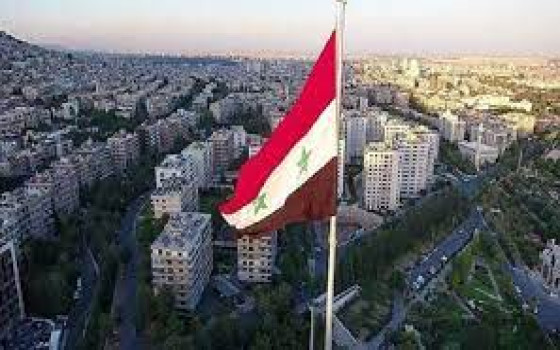
Syria: IOM stresses housing and property rights for returnees, Commission of Inquiry visits Damascus for first time

- Europe and Arabs
- Saturday , 21 December 2024 8:36 AM GMT
Geneva - Damascus: Europe and the Arabs
The Director General of the International Organization for Migration, Amy Pope, said that the return of Syrian refugees, which is expected to occur, will be on a much larger scale, and the integration of returnees in parallel with transitional justice will be "a truly huge task." At the same time, a UN committee visited Syria for the first time since its establishment in 2011 in order to investigate violations. According to the UN daily news bulletin, Amy Pope briefed journalists in Geneva on the details of her visit to Syria, where she met in Damascus with the interim government, the humanitarian community, civil society, diplomacy and donors. The UN official said: "I saw a country at a crossroads, whose people are determined and determined to move on from the past, determined to rebuild their lives, despite their wariness of the enormous uncertainty about what lies ahead."
Pope pointed out that while there is a strong desire among displaced Syrians to return to their homes, doing so prematurely could overwhelm the already fragile infrastructure, which could force families to move again. Regarding her meetings with officials of the interim government, she mentioned her meeting with a representative of the interim government working in social affairs who will be a key government partner in the organization’s response, and who expressed his interest in rebuilding the country and opening up to the international community with a declared readiness to partner to address the needs of Syrians.
Assistance to returnees
The Director General of the International Organization for Migration recalled that the organization was pushed out of the country by the previous government, but it continued to provide assistance through the cross-border aid delivery mechanism, reaching millions since 2014, and the organization also played a major role in the health sector in Syria.
She stressed the need to address the needs in Syria on a broader scale, adding that “now is the time for the international community to work together.” The UN official identified a set of priorities to help the Syrian people rebuild more effectively, including humanitarian assistance and achieving stability.
Justice, compensation and inclusion are essential parts of the transition process, said Pope, adding that “housing, land and property rights are critical and at the heart of community stability, in the context of anticipated return. We have experience in achieving this in many countries, such as Iraq, where we have seen the vital role of protecting and supporting these rights in post-conflict recovery.”
She pointed out that the organization was able in Iraq to address immediate recovery needs while promoting an environment conducive to peaceful and durable solutions, sustainable return and long-term stability for those affected by conflict and displacement, by protecting basic rights, rebuilding trust after years of conflict, and enabling broader programming including shelter, livelihoods and social cohesion.
The UN official said: “Syrians want to know that when they return, they are returning home for good, and that their families will be safe and supported. These families have a lot to think about, they need to know that they are making the right decision. They need to know where their children will go to school. They need to know whether their home is still there or has been destroyed, or whether they are safe.”
She spoke about ways to implement these priorities, including the crucial role of data collection, expanding their presence on the ground, and reaching out to neighboring countries that have hosted Syrians in the past period.
“We are no longer worried about being bombed”
At the same press conference, Christina Bethke, acting WHO representative in Syria, spoke from Damascus about the state of health infrastructure, saying that “in just three weeks, there have been 36 attacks on health care facilities and more than half of the country’s hospitals are no longer functional.”
She reported that on Thursday, a WHO team was in Idlib, where they visited hospitals that have become lifelines during the recent escalation of the conflict.
She added that the WHO team met “dedicated surgeons who have worked tirelessly, often under attack, to save lives. One surgeon shared with us the words of a patient who came to the hospital and said: ‘We finally sleep at night, and we are no longer worried about being bombed. ’”
The UN official said that many of the people the WHO team met in Idlib had returned to visit their homes since December 8, only to find them reduced to rubble. “These people, who have been displaced multiple times or returned from Lebanon and Turkey, need support to rebuild their lives,” she added.
Mental and psychological health
The acting WHO Representative in Syria stressed that in a country suffering from more than a decade of conflict and displacement, mental health and psychosocial services are not only critical, but life-saving for families.
“Our team met Fatima, whose two daughters, aged 6 and 10, suffered from sleepless nights, recurring nightmares, and anxiety. Over the past three weeks, they have benefited from psychosocial support services, which has given them a sense of stability and hope,” she said.
Bethke said that WHO teams are facilitating access to health care for displaced and returnee populations through referrals to functioning facilities and mobile clinics that provide basic care, vaccinations, and maternal health services.
The organization also works to integrate mental health support into health facilities, especially for those affected by trauma, as well as coordinating referrals between non-functioning and functioning health facilities and ensuring the safe transfer of patients to specialized hospitals for critical care.
Tackling immeasurable pain
In turn, Thameen Al-Khaitan, spokesperson for the Office of the United Nations High Commissioner for Human Rights, announced that the Office will send a small team of human rights officers to Syria next week to support the existing UN presence on human rights issues.
Human rights, as well as efforts to ensure that any transition is inclusive and within the framework of international law.
Al-Khaitan told reporters in Geneva that transitional justice and building community trust based on human rights will be a crucial chapter in Syria’s future, adding that “this is the only way to address the immeasurable pain that individuals and families across the country have endured for decades, and to build a future in which the human rights of all Syrians are respected, protected and fulfilled equally.”
He called on the interim authorities to act to ensure that security is restored, those accused of crimes are held accountable in accordance with international human rights standards, and women, children and diverse ethnic and religious communities are fully able to exercise their rights.
The UN High Commissioner for Human Rights, Volker Türk, was quoted as commenting on the appointment of Karla Quintana as Chair of the Independent Institution for Missing Persons in the Syrian Arab Republic, stressing how important this moment is in Syria, both for those who remain missing and for their loved ones.
First visit by the Commission of Inquiry
For the first time since it was established by the Human Rights Council in 2011, the UN Commission of Inquiry on violations in Syria visited the country and said it had received new information about detention centers run by the former government and mass grave sites.
The commission said in a press release that this first visit represents a potential new beginning for greater cooperation with the commission and other national and international human rights bodies. The commission’s team visited former prisons and detention centers, including Sednaya Prison and Military Intelligence Branch 235 (“Palestine Branch”).
The team expressed dismay to see that much of the evidence and documentation that could help families uncover the whereabouts of their disappeared loved ones or could serve as evidence in future accountability processes, had been destroyed, destroyed or taken. In some cases, large storage facilities for documents had been set on fire and burned. The commission said that families at some of these sites were searching through the remaining documents in the hope of finding information about the fate of their loved ones.
The team also noted that there were a large number of documents that could still be salvaged, and received information that additional records had been maintained either by the caretaker government or by civil society organizations.
The UN Commission of Inquiry warned that actions now taken - even if in good faith - could complicate future efforts to identify the missing and resolve the mystery for their families. It stressed the need to take the utmost care to protect mass graves and preserve documentation and evidence throughout Syria. To help, the Commission proposed that the new government establish a unit to lead and coordinate the protection of mass graves and all relevant documentation until Syrian and international experts can examine them and exhume bodies and remains to protect the families’ right to know the truth.



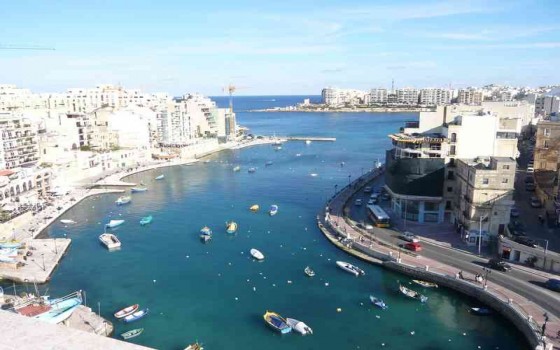



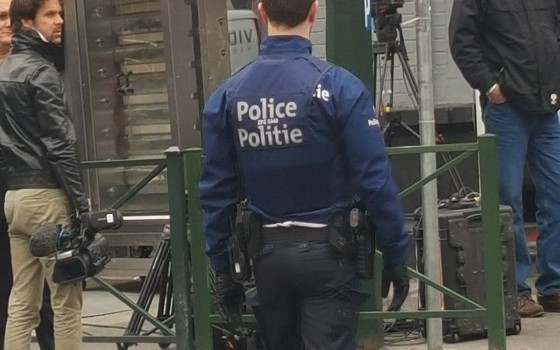
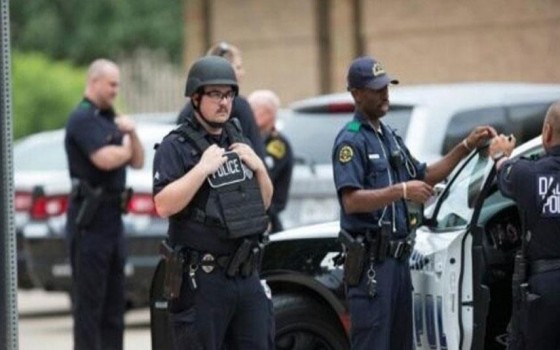
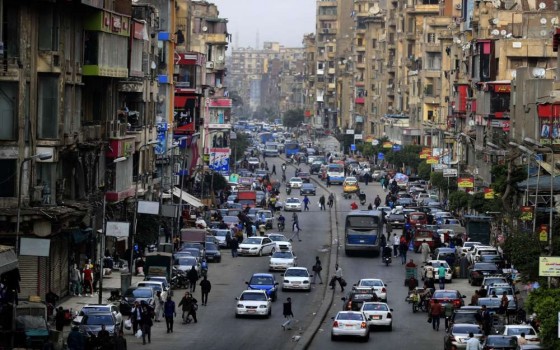
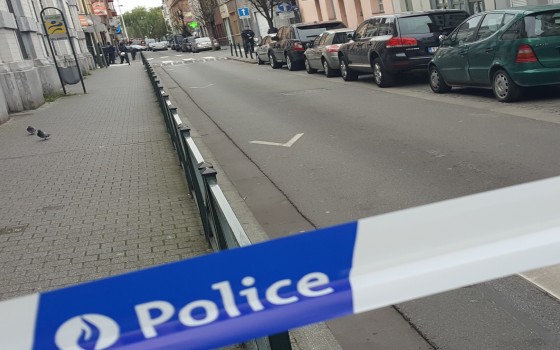

No Comments Found